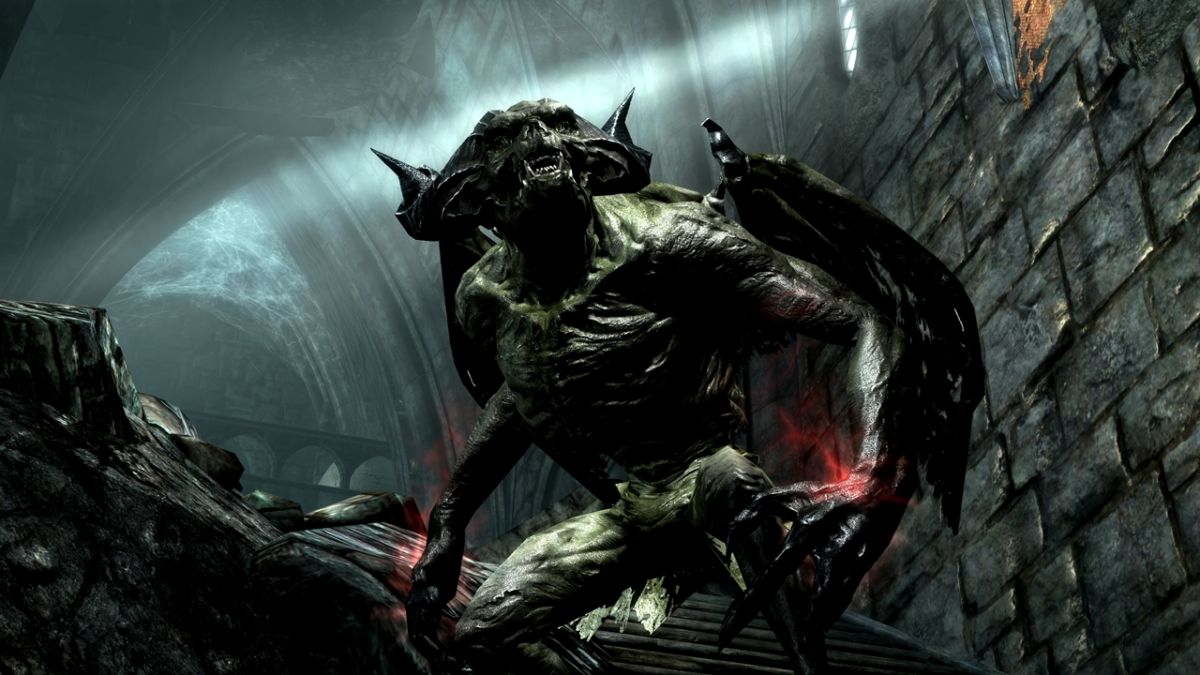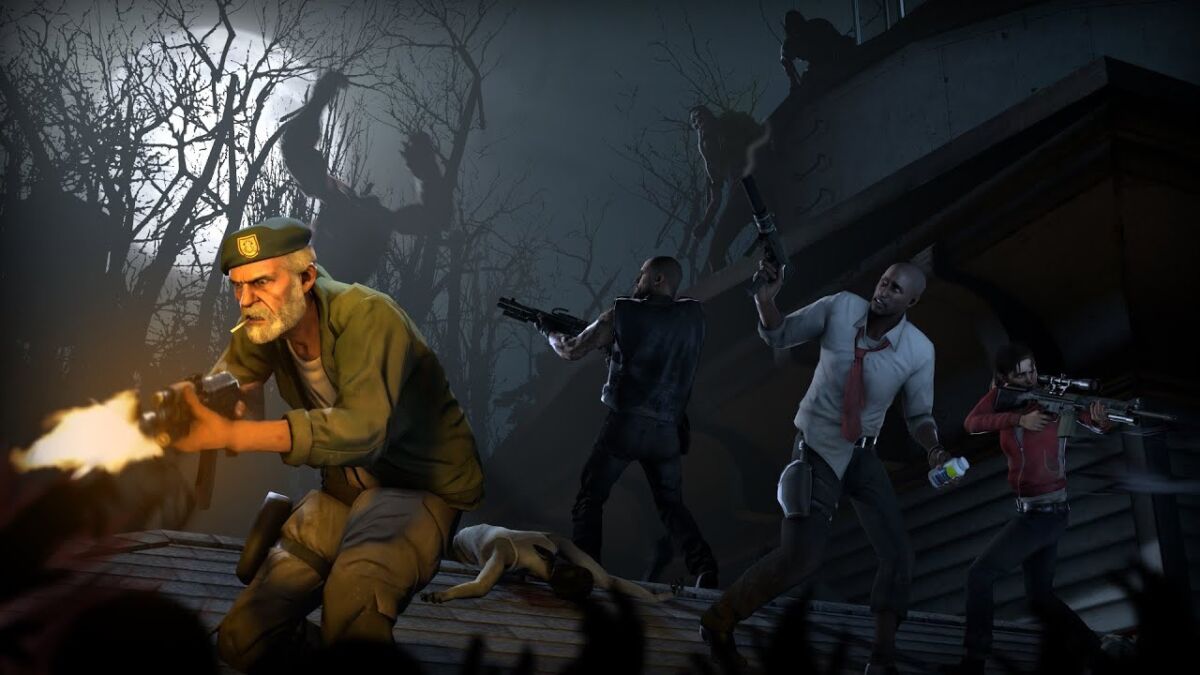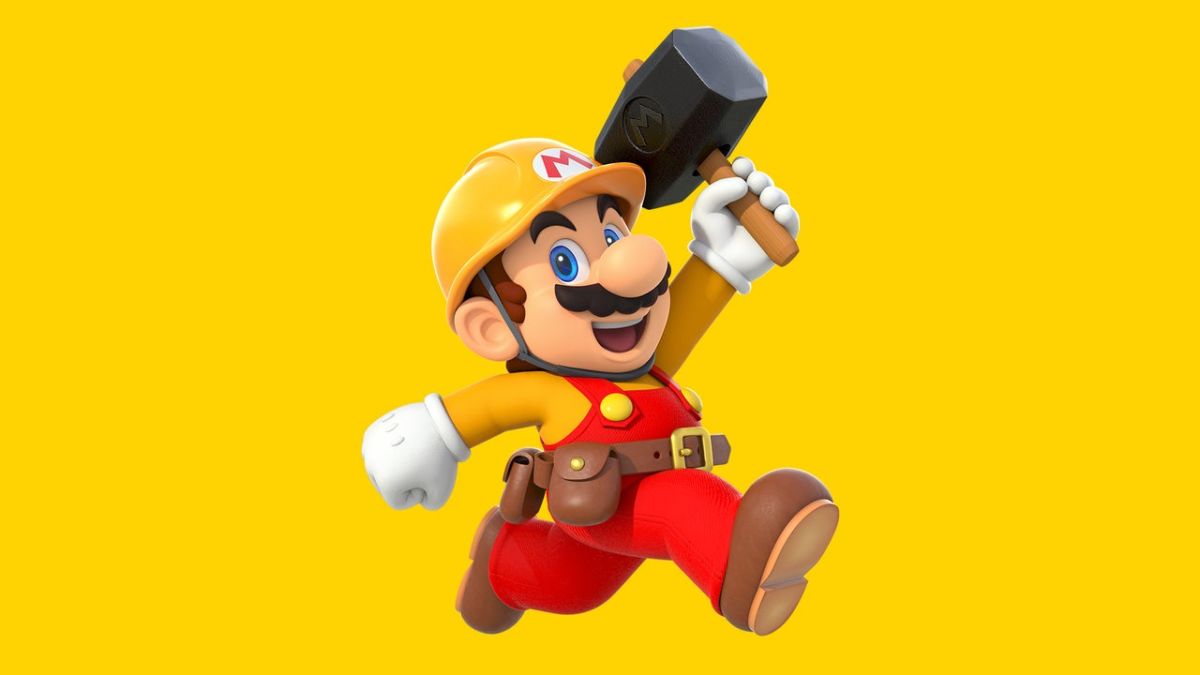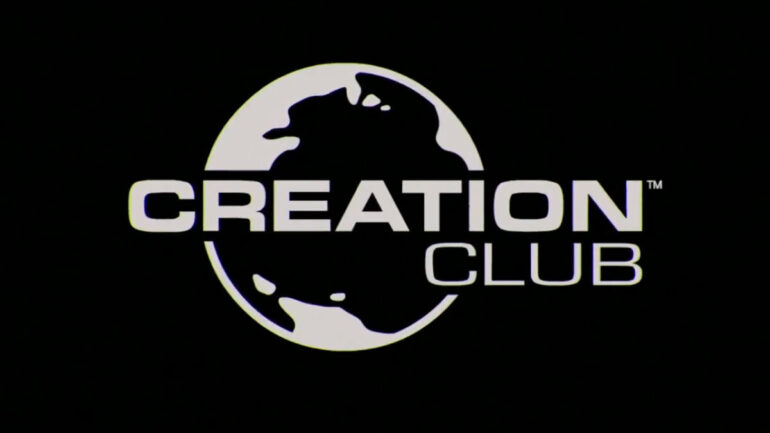Enthusiast gamers all over the world produce a lot of user-generated content (UGC). So much so that it’s forced the gaming industry to reconcile with that influx in a number of different ways, some more community-friendly than others.
For context, a 2017 marketing report stated that “An overwhelming 90% of US consumers [who had made an online purchase in the past twelve months] report user-generated content to be the most influential part of their purchase decisions.“
In gaming, modding is the greatest expression of UGC and a recent dossier by DFC Intelligence says, “This … user base clearly prefers Steam over Electronic Arts. In large part this is driven by the Steam Workshop (a central hub of player-created content)… Overall UGC represents a major shift in the way not only games are developed but how they are distributed.”
Nexus Mods, another online hub for modders, boasts over 275,000 mods spread across a thousand games, and more than four billion downloads to date. And that’s not to mention “mods turned into games” success stories like CS:GO and Dota 2, which consistently make Steam’s top three games by concurrent player count.
Modding isn’t just a hobby, it’s a serious business. But for all the modding community gives, is the industry giving them enough back?
Return on Investment

Live services are the monetization flagship of the industry. During the last quarter of 2019, EA’s live service revenue was three times higher than full game downloads (almost a billion dollars) and some games feature thousands of dollars worth of DLC content. But monetization practices are facing a lot of scrutiny by the public and the authorities, which has prompted regulations to be implemented in regards to loot boxes. Microtransactions in general aren’t going anywhere, but this increased awareness means their long-term profitability is in question. UGC, as it turns out, may provide them a way for staying ahead of the curve.
All kinds of UGC have marketing value that makes a game relevant well beyond their natural life cycle — The Elder Scrolls and Fallout franchises are a testament to that. And that value can extend to the storefront as well. The perception microtransactions carry of a greedy, predatory practice can be offset by incorporating modding into their business model. As marketer Anne Griffin notes in Social Media Week:
In this age of disruptive, inauthentic marketing, UGC is something that emerges as the perfect alternative, which provides the personal, trustworthy information to consumers to help their purchase decisions … First and foremost, when incorporated in marketing campaigns, UGC helps in creating & building a sense of trust & reliability among the consumers about the brand & its products.
The industry has been testing the waters with this concept for years now. Take the Creation Club, for instance. Even though The Elder Scrolls and Fallout expansions have been well-received, Bethesda’s PR department has always had a hard time implementing actual microtransactions in these franchises. One could call it the “horse armor effect”, I guess. So they decided to experiment with UGC instead.
In 2015, there was a failed attempt at introducing monetization to Skyrim’s Steam Workshop and then, in 2017, the Creation Club was released. One interesting aspect of this service is that, despite what its name might suggest, it sells content developed in-house too, rather than just community creations. Following all general trends, this leverages UGC’s relatability to make their cash shop more palatable to consumers.
The Workshop’s revenue-sharing didn’t work for Skyrim, but it enjoys great success with games by Valve, namely Team Fortress 2, Dota 2, and CS:GO. Combined, these titles have incorporated more than ten thousand mods into their shops. And with more games joining in this practice — like Flight Simulator — the bond between modders and publishers is only going to grow stronger.
A Penny for Your Mods

Modding is hard work. And one way to sway creators into providing that work for free is by using their love of the game against them:
Ever dreamed of seeing your brilliant ideas come to life in games played by millions of people? Now you can, with the Steam Workshop Your favorite games don’t need to end just because you’ve finished them. Fans, hobbyists, and aspiring game developers from around the world can add to or modify their favorite games by creating “mods”.
As an example, Valve recently released The Last Stand, its first Left 4 Dead 2 update in eight years. Cultured Vultures reached out to project lead Rayman1103 with some questions about their community creation:
How would you describe your relationship with Valve?
Very good. I’ve personally been in contact with a few people at Valve over the years. There were various occasions in the past where I would notice some bugs or issues in L4D2, and I would send Valve files to fix those issues. Which they would then use in an official update.
Was there any form of monetary compensation for the team?
No, there wasn’t any form of monetary compensation for us at all. We all wanted to work on the project as a way to contribute to a game we all love dearly.
The update received some backlash (apparently) for fixing some exploits, of all things. But its reception was mostly positive and the team has stated they’ve “been listening to feedback from the community to help address these complaints. Some changes have already been reverted or altered based on gathered feedback post-update.”
The desire to help the games you love is truly laudable, but whether it’s through marketing or microtransaction revenue, all mods add value to the game and so, whether they’re paid or free to download, all modding has a built-in free labor factor.
When it comes to free mods, something to consider is that they’re not actually free. The modders may volunteer their time, but that time has a monetary value that isn’t being properly met. From YouTube to Nexus Mods and everywhere else where community creations can be found, there’s a growing trend to support creators through donations.
It’s good for us to have the option to donate and, in practice, many creators couldn’t dedicate themselves as much without them, but this model of compensation shifts the burden of funding improvements to the game from the publisher to the consumers. And keep in mind that even if a company becomes financially involved, free mods can remain free. Just look at CD Projekt Red’s free add-ons for the Witcher 3, for instance. Whether it’s a free mod or a free DLC, companies will benefit from both and it shouldn’t be a given that whenever they help fund a mod’s creation, that mod should be kept behind a paywall.
In the case of paid mods, creators are being compensated by the publishers, but the extra marketing value of community creations should be taken into account when deciding their cut.
Other means of extracting value out of UGC without compensating their creators range from Zenimax allegedly using a mod’s story in their own official quest — a right they had preemptively secured through their EULA — to Sega allegedly encouraging modders to include Manchester United’s crest into Football Manager, in order to avoid paying licensing fees for it.
And there’s yet another component that’s hardly spoken of: leveraging the community for free R&D. Valve unintentionally admits to this in their Steam Dev Days 2014 talk titled Embracing UGC, currently in their Steamworks documentation.
UGC is an ongoing service … that is not bound by the amount of time and resources you have… The community will make those games better because they’ll experiment and iterate at a much faster rate than you or I ever could. They’ll find out things that they like and what they don’t, and that’s actually real data for you to use.
The industry has two languages for discussing the same subject. They talk about modding in terms of community and player choice, but when they think we’re not listening, corporations talk about UGC (and the people who make them) as a calculated investment. Creators need to look beyond the PR veil if they want to know how much the industry thinks their work is actually worth.
Going Forward: Rays of Light

Despite the problems presented so far, both Valve and Bethesda’s models show promising signs that they’re willing to work with the community, rather than the community working for them.
Steam and the Creation Club take different approaches to how they compensate creators. The Workshop provides 25% in royalties over direct sales and in the Creation Club, “Creators are paid for their work and start receiving payment as soon as their proposal is accepted and through development milestones.”
The value of community contributions doesn’t end the moment they’re added to a game and Valve’s approach seems fair, since royalties will continue to reward creators for as long as their contributions remain in said game. But there are ways for players to acquire those mods that don’t necessarily benefit the creators, such as secondary sales on the marketplace or unlocking them just by playing the game. Also, those royalties will face diminishing returns the more items are made available, since any given item becomes less likely to be purchased. While, at the same time, every item’s marketing value arguably grows. Since the more items are made available, the more appealing the game becomes.
The Creation Club’s way guarantees their work will be compensated no matter what, but it undercuts the long-term value of their contributions. Joining both methods should provide a more fair and comprehensive way of repaying creators for their work.
Valve has also hired creators and developed their mods into full games, both from within their community (Counter-Strike, Day of Defeat, Black Mesa, and Garry’s Mod) and from outside as well (Dota 2, Alien Swarm, and Team Fortress 2), which, to be honest, is probably the best outcome any creator could hope for.
Another way companies have assisted creators is by helping them grow as developers in their own right. Creation Club contributor Rob Vogel (fadingsignal) has stated, “They’ve been very supportive and have taught the other Creation Club members and myself so much. … Being guided through the best way to accomplish something by someone who actually built the game, or even the engine itself is pretty incredible.”
The same goes for the community team behind L4D2’s The Last Stand, who said:
“It was great working with Valve on the update. There would be times where we wanted to implement a new feature, and Valve was able to add the feature for us to use. We then proceeded to test out the new feature on a private Beta branch, to ensure it was working as intended.”
There’s room for improvement, but these systems could be a solid foundation going forward. One question that’ll remain unanswered for a while is how Microsoft’s acquisition of ZeniMax will affect the Creation Club. I’ve reached out to Bethesda but haven’t received any comments as of the writing of this article. We’ll post updates should they reply to our questions.
And lastly, more could be done for the free mods community. Companies may not be able to monetize their content, but the marketing and R&D benefits modders add shouldn’t go unrecognized. Some simple steps that could be taken include:
– Support for creators in the form of guides and workshops released by the publishers/developers. Maybe even have in-house developers guide creators directly, one or two projects at a time.
– Extending limited QA support for the community.
– Providing hosting services for mods.
– A reward system for free mod creators that grants currency for the in-game shop, for example.
– And a review of their EULAs to guarantee modders will be credited should their mods be used by those companies in any way.
A path of mutually assured benefits for companies and creators alike isn’t just optimal, it’s within reach.
Going Forward: Dark Omens

Traditionally, UGC is created by the community for a product they love. But in some cases, UGC is the product.
With titles like Garry’s Mod, Roblox, Dreams, Super Mario Maker 2, and the newcomer Core, there is a growing trend of platforms that formalize the free labor aspect of community creation. These are, functionally, game engines. But whereas game engines license you the right to create your own products, these platforms sell you the right to create products for them. The purpose of these apps is to create content that is bound to their system where, collectively, the marketing value they generate is converted into sales.
The gaming community should be wary of practices that tether their creativity to a conveyor belt. Community creations have more value than the industry is willing to admit and if the community doesn’t claim it, the industry will.
READ NEXT: 50 Best Horror Games Of All Time
Some of the coverage you find on Cultured Vultures contains affiliate links, which provide us with small commissions based on purchases made from visiting our site.

